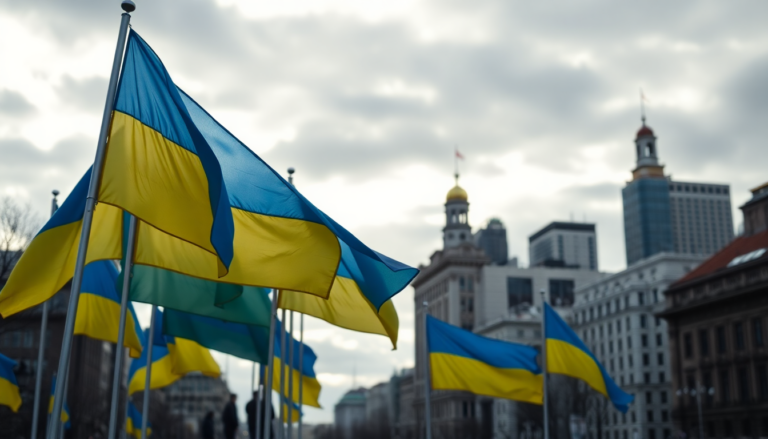Argomenti trattati
The ongoing conflict in Ukraine has not only captured the attention of regional powers but has also become a central focus for global leaders. With a highly anticipated meeting between U.S. President Donald Trump and Russian President Vladimir Putin on the horizon, the stakes couldn’t be higher. What’s at play here might just reshape the future of Ukraine, a nation that has faced years of turmoil since the conflict began. But why should this matter to you? Understanding the implications of this meeting is crucial for all stakeholders involved, especially for Ukraine, which is striving to secure its sovereignty and territorial integrity.
The Geopolitical Backdrop
As European nations rally around Ukraine, the upcoming talks between Trump and Putin mark a pivotal moment in the ongoing conflict. Ukrainian President Volodymyr Zelenskyy has made it clear: there’s a strong desire for a resolution that respects Ukraine’s territorial rights. But how will the U.S. administration approach this delicate situation? Vice President JD Vance has hinted that a mix of dialogue and strength will be key in negotiations.
Top European leaders have echoed a vital principle: any peace agreement must include robust security guarantees for Ukraine. This reflects a broader geopolitical landscape where the European Union and NATO countries are acutely aware of the potential dangers of a Russian expansionist agenda. The balance of power in Eastern Europe hangs in the balance, and the actions taken during this meeting could have long-lasting repercussions.
However, the Kremlin’s insistence on territorial concessions from Ukraine raises serious questions about the implications for the sovereignty and unity of the nation. The idea of a peace deal that includes territorial compromises is riddled with political risks for Zelenskyy, who must deftly navigate both domestic pressures and international expectations. Can he strike the right balance?
Current Military Dynamics and Implications for Peace
On the ground, the military situation is anything but straightforward. Ongoing skirmishes and the presence of Russian forces in contested regions complicate matters. Reports from the frontlines indicate that Ukrainian forces are tirelessly working to repel incursions while also dealing with the humanitarian fallout of the conflict. As military dynamics shift, the need for a ceasefire becomes increasingly urgent to create the right conditions for meaningful negotiations.
While the U.S. has been calling for a ceasefire as a prerequisite for any discussions, the Kremlin’s insistence on Ukraine meeting specific conditions adds another layer of complexity. Without a clear path forward, we might see further escalation if diplomatic efforts falter. As both sides gear up for negotiations, striking a balance between military readiness and diplomatic engagement will be crucial. Will they find common ground?
Moreover, the international community is watching closely, with calls for a strong response if Russia continues its aggressive stance. The military actions taken in the lead-up to the Trump-Putin meeting could significantly sway the negotiations, as both leaders will need to consider the current realities on the ground. What will their assessments lead to?
Future Outlook and Strategic Considerations
The outlook for Ukraine following these high-stakes negotiations is steeped in uncertainty. While there’s a cautious optimism that dialogue could pave the way for resolution, the intricacies of the situation demand a thoughtful approach. European nations, in particular, are poised to play a crucial role in influencing the outcomes of these discussions.
As Zelenskyy maneuvers through this diplomatic landscape, maintaining strong international alliances is essential for Ukraine. The backing from NATO and the EU will be vital to ensure that any agreements reached don’t compromise Ukraine’s sovereignty. Additionally, the possibility of heightened sanctions against Russia could act as a deterrent against further aggression. Could this be the leverage needed?
Ultimately, the meeting between Trump and Putin will serve as a litmus test for Ukraine’s future. The choices made in Alaska will echo far beyond the immediate context, potentially redefining the geopolitical landscape of Eastern Europe for years to come. As the world watches, we can only hope that this crucial moment leads to a just and lasting peace for Ukraine. Will history remember this as a turning point?

